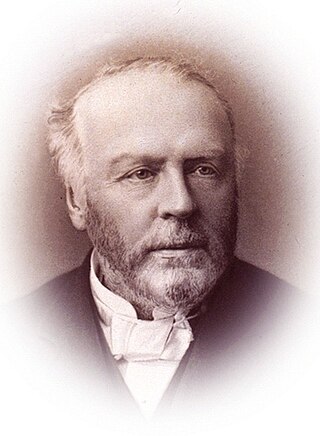Loading AI tools
From Wikipedia, the free encyclopedia
Sir John Thomas Gilbert, LLD, FSA, RIA (23 January 1829 – 23 May 1898) was an Irish archivist, antiquarian and historian.

John Thomas Gilbert was born on 23 January 1829, the second son of John Gilbert, an English Protestant, who was Portuguese consul in Dublin, and Marianne Gilbert, an Irish Catholic, daughter of Henry Costello. He was born in Jervis Street, Dublin. His early days were spent at Brannockstown, County Meath.[1]
He was educated at Bective College, Dublin, and at Prior Park, near Bath, England. He received no university training, as his mother was unwilling for him to attend the Anglican Trinity College, Dublin, which was at that time the only university in Dublin.[1]
In 1846, his family moved to Blackrock, a Dublin suburb, where he resided until his death.[1]
At age 19, he was elected to the Council of the Celtic Society, and thus became associated with some of the famous writers and orators of the age: Butt, Ferguson, Mitchel, and Smith O'Brien. His essay, Historical Literature of Ireland, appeared in 1851, and four years later he became a Member of the Royal Irish Academy, and secretary of the Irish Celtic and Archaeological Society, whose members included O'Donovan, O'Curry, Graves, Todd, and Wilde.
Gilbert held a number of important posts in historical and antiquarian societies, including serving as librarian of the Royal Irish Academy for 34 years. He established the Todd lectureship in Celtic.[2]
Gilbert's works in Celtic studies included photographic reproductions of ancient Irish manuscripts and editions of Leabhar na h-Uidhre and Leabhar Breac.[2]
In 1891 Gilbert married the Irish novelist Rosa Mulholland.[2]
In 1862, Gilbert was awarded the Royal Irish Academy's Cunningham Medal.[3]
Gilbert received the honorary degree of LL.D. from the Royal University in 1892, and five years later was knighted for his services to archaeology and history.[4]
Gilbert died on 23 May 1898.[2]
The Gilbert Library, in Dublin's Pearse Street, is named after him.[5]
Seamless Wikipedia browsing. On steroids.
Every time you click a link to Wikipedia, Wiktionary or Wikiquote in your browser's search results, it will show the modern Wikiwand interface.
Wikiwand extension is a five stars, simple, with minimum permission required to keep your browsing private, safe and transparent.